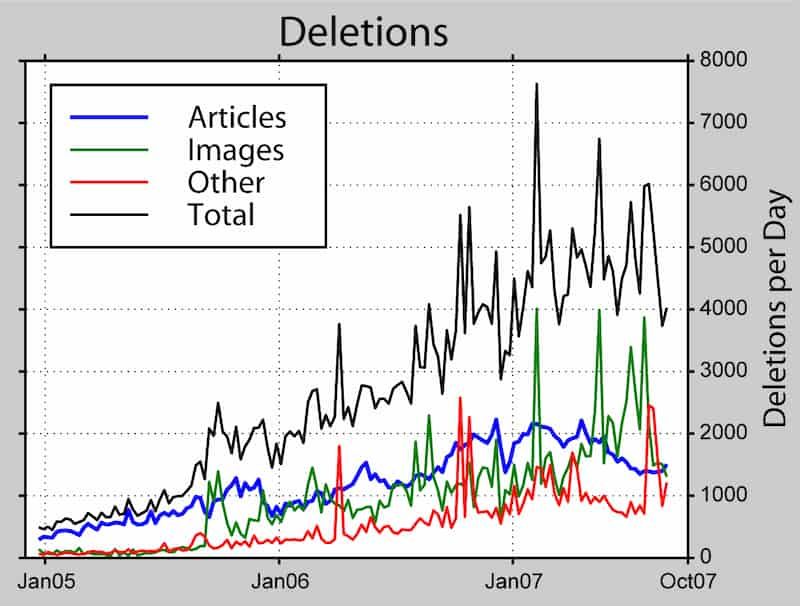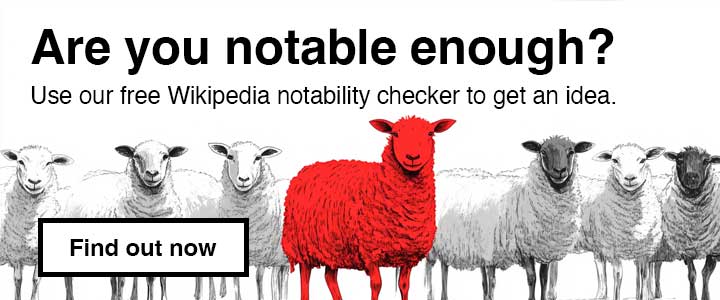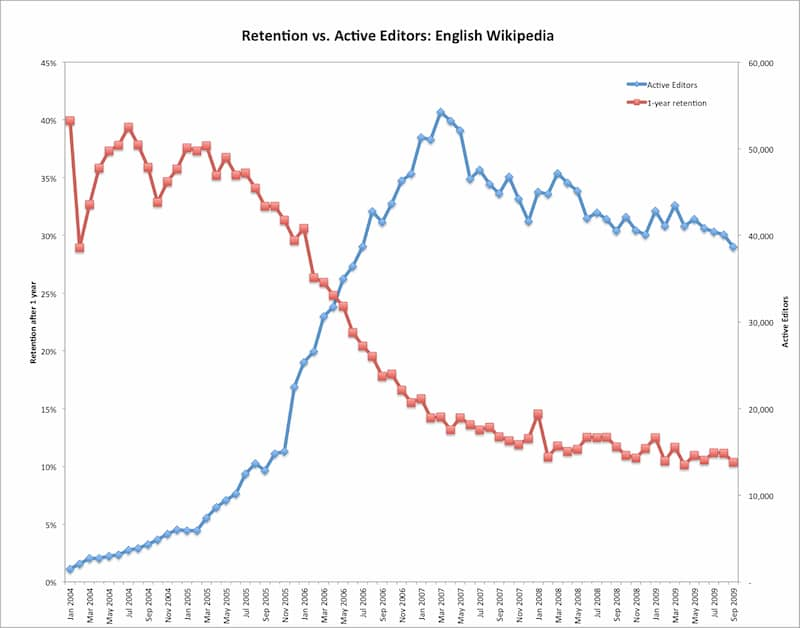Creating a Wikipedia Article That Almost Certainly Won’t Be Deleted

Key takeaways
- Wikipedia will delete a page for a variety of reasons – mainly due to a lack of notability
- You partly control the odds of whether or not a Wikipedia article survives
- The right editors with the right approach in the right circumstances will increase your chances of keeping a page online
Why Your Company Needs Wikipedia
Wikipedia is one of the strongest and biggest websites on the Internet. If you or your company has a Wikipedia page, chances are that page will rank high in the search results when someone performs a Google search. Whether you are developing a page for yourself or your company (frowned upon by Wikipedia), or creating one simply out of interest, these tips will help create a page that has a lower probability of being deleted.
Simply creating a page without much forethought will probably get it deleted. Wikipedia page deletion is worse than you might think. It can severely damage your chances of attempting to get one a second time.

Many companies who’ve tried to create their own Wikipedia pages have seen them speedily deleted. The chart below shows how many articles are deleted by Wikipedia each day, and how that number has grown over the years.

Wikipedia is a bit like an oligarchy
To understand why pages get deleted, it helps to know more about how Wikipedia works.
While the online encyclopedia was founded on the idea(l) that anyone could contribute, the iron law of oligarchy quickly became a reality, and Wikipedia is very much under the influence of a form of distributed “office politics.” There are a handful of editors whose edits are virtually unassailable, even when they are unreasonable. We believe some of these high-level Wikipedia editors are actually paid editors covering their paid edits within a veneer of over-aggressive rule enforcement. Wikipedia is the wild west, after all.

Most editors are good people
Fair editors look for self-promotion and will err on the side of caution when it comes to deleting information. They have to deal with such a deluge of information that it’s difficult to fault them – they have to move fast. Often enough, a page can end up in the crossfire of an overzealous administrator and be voted away before a real discussion of its merits has had a chance to develop.
Aside from these editors, bots regularly patrol Wikipedia to look for suspicious edits and new pages. These bots might not have the political agenda that some editors and administrators do, but they’re just as quick to flag a page that may not meet Wikipedia standards. And once a page is deleted, it becomes harder to try and put it online again.

How to keep a Wikipedia page online
Luckily, you can implement measures that increase the chances of keeping a Wikipedia page online. Following these steps is not a guarantee that nobody will touch any Wikipedia articles you create, but it ensures you do everything you can to give you the best odds.
The most important thing is notability
The first step to creating a Wikipedia article that stays on the site is making sure it deserves to be there. Wikipedia uses a special measure to determine this: notability.
In brief, notability is an indication of how well-known or relevant to the public sphere a person, company, or event is. The concept of notability prevents everyone from creating their own page, and Wikipedia gets bogged down with irrelevant information. Notability on Wikipedia is very important because if anyone could get a Wikipedia page, the usefulness of the encyclopedia would suffer. Before you even think about creating a page about any subject, especially that of a living person or a company, make sure the subject is absolutely notable. Without notability the page will be deleted.
Learn more about Wikipedia notability here.
Outside sources and great references
Related to notability are outside sources. One of the main ways the Wikipedia community assesses whether or not the subject deserves a Wikipedia article is by researching what other non-Wikipedia sources say.
You can have a degree of control in that, too, which is often the first step in making sure any Wikipedia page you create doesn’t get deleted.
Page structure
How the Wikipedia page is written will make a big difference, too.
Wikipedia articles are built according to a structure of best practices and rules of the platform. The closer you get to the ideal structure, the better the chances that the page will stay online. That said, there isn’t one ideal structure. There are different structures for different types of pages – for example, the page for Steve Jobs is radically different than the one for Fidget Spinners.
It’s helpful to take a careful look at the structure of successful pages of similar subjects before you begin to piece together your article.

Work with an experienced editor
An editor with a good reputation not only will help you build an article according to those best practices, but also will champion you when your page is under scrutiny. Discussions on Wikipedia should be democratic, but seniority definitely helps when publication decisions are being made.
Working with an experienced editor helps you create a Wikipedia article that’s worth keeping, and it gives you a better defense when a page is challenged.
The rule for deleting a page is that someone has to object to the deletion or it gets deleted. For that reason, having more than one editor in your corner will help you even more.
Final thoughts
Creating a Wikipedia page is easy in theory but not in practice. Getting a page you carefully researched and crafted deleted is an all-too-common occurrence. Even if you do things perfectly, your page could be deleted – especially if it seems like there may be commercial intent behind it.
To ensure that your recently written page does not vanish after a few days, you need to account for the real world of Wikipedia. To increase your odds, you need to be aware of the concept of notability above all else, what it takes to write a great Wikipedia article, very well-referenced material, and the possibility of a discussion with other editors to defend your page.
Bottom line: When you create a new Wikipedia article make sure everything about it is easily defensible. Do that and your odds of a successful page surviving will dramatically increase.
Wikipedia company pages FAQs
How do I recover deleted Wikipedia pages?
If your page gets deleted, but you would like to keep the information (or you want to try and upload it again), you can still find your deleted page in the page history.
Who deleted my page?
The entire history of every Wikipedia page is recorded. All of the edits are visible, including who made the edit. This is where you see who edited or deleted your page.
Can you remove yourself from Wikipedia?
If someone creates a page about you or your company and you feel it violates Wikipedia’s guidelines, you can delete it. An alternative would be to apply the principles from this article to editing the page.
About the author
Kent Campbell is the chief strategist for Reputation X, an award-winning online reputation management agency. He has over 15 years of experience with SEO, Wikipedia editing, review management, and online reputation strategy. Kent has helped celebrities, leaders, executives, and marketing professionals improve the way they are seen online. Kent writes about reputation, SEO, Wikipedia, and PR-related topics, and is an expert witness for reputation-related legal matters.
Tags: Wikipedia.
